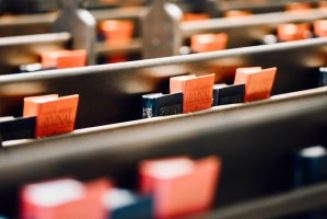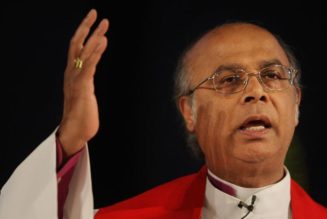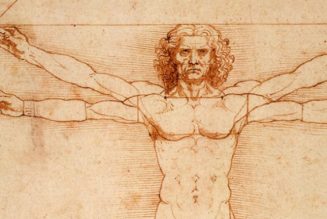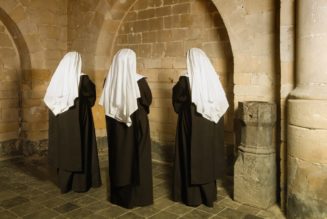
The first reading for Sunday Mass speaks to us of the call of Samuel. In examining it, we can see what it is that makes a great prophet. Put more theologically, we can see the ways in which God’s graces form a great prophet.
Samuel was surely one of the most significant prophets of the Old Testament and lived at a critical time, as Israel shifted from the time of the judges to the time of the monarchy. Ultimately, it was he who would see Israel through the difficult time of Saul’s reign and prepare and anoint them for David’s kingship to follow.
What, then, are some of the ways in which God prepares Samuel and every prophet (this means you) for mission? Consider these five.
1. The CLOSENESS of a great Prophet – In the first reading, we find the young Samuel sleeping in the temple of the Lord. In those days, the temple was not yet in Jerusalem nor was it a permanent building; it was a tent structure in Hebron. Samuel, as one in training for temple duties, is sleeping near the Ark of the Covenant, which carried the presence of God. Thus we see that a great prophet begins and remains so by staying close to the Lord.
We must do the same if we wish to be great prophets to our family and friends. How will parents give prophetic witness to their children if they are distant from the Lord? How will a priest preach with authority and power if he does not stay close to the Lord?
How do we draw close to the Lord? Daily prayer, devout reading of Scripture, frequent confession, weekly reception of Holy Communion, and a spirit of wonder and awe. Ask for these virtues. Stay close to the Lord. Great prophets stay close to the Lord.
2. The CONSTERNATION of a great Prophet – The first reading depicts Samuel as struggling with some confusion as to what he is hearing and from whom. God is calling, but Samuel doesn’t get it. He struggles to figure out what is happening to him. A look at the call of the great prophets reveals that most of them struggled with their call. Moses felt old, inarticulate, and inadequate. Jeremiah felt too young; Isaiah, too sinful. Amos would have been content to remain a dresser of sycamores. Most of the prophets felt overwhelmed and experienced consternation.
Samuel eventually figures it out who it is that is calling him and begins his journey. He had to listen for a while to do that, however.
How about you? Many of us too would want to run if God made it clear that He had something for us to do. In a way, that is a proper response, for pride is a bad trait. To be troubled, to experience a bit of consternation and anxiety, helps us to remain humble and to keep leaning on the Lord.
What is the Lord asking of you? Perhaps, like Samuel, you struggle to understand at first. Stay close to God and things will eventually become clear.
The great prophets struggled, but that is the point. They struggled with God for an answer and for a vision.
3. The CONNECTEDNESS of a great Prophet – Notice that Samuel does not discern on his own. He seeks counsel from a wiser man. Although Eli is not a perfect teacher, God does make use of him to help Samuel.
We, too, ought to seek good, strong spiritual influences, friends and clergy, to help us to discern. Scripture says, Seek counsel from every wise man (Tobit 4:18). It is a bad idea to try to discern alone. We should cultivate relationships with wise and spiritual men and women in our journey.
The great prophets were connected to spiritual leaders and teachers. They read and consulted other prophets. God does not just call us to a vertical, private relationship with Him. He also calls us to a horizontal relationship with others. Seek wise counsel—great prophets do.
4. The CORE of a great Prophet – Samuel is advised by Eli to say to God, Speak, Lord, for your servant is listening. A great prophet listens to God, but God does not always say easy things. He often challenges, but great prophets listen very carefully to Him. They do not try to bury His word; they do not forget what He says. They take what they hear seriously and do not compromise God’s Word.
What about us? It is easy to avoid listening to God or to compromise what we have heard, but great prophets listen carefully to Him by doing these things: reading and studying His word, observing how He speaks through creation and in the events of each day, studying the teachings of the Church, and listening to the small, still voice within carefully and prayerfully.
Do you want to be a great prophet? Then listen.
5. The CAPABILITY of a great Prophet – We see in Samuel’s life how was gradually transformed into a great prophet of God who never compromised God’s word. The text says, Samuel grew up, and the LORD was with him, not permitting any word of his to be without effect. Because Samuel was close to the Lord, faced his own consternation, was connected to the wise, and had that core virtue of listening, he became a great prophet. The Hebrew text is more literal in saying that God did not let a word of Samuel’s fall to the ground.
Being a great prophet is a work of God. We who would and should be great prophets ourselves ought to heed the way in which God works to make great prophets. Learn from Samuel. Study all the prophets and you will see what God can do.
While most of us wish that our words had greater effect, it is less clear that we want to undertake the process necessary to get there. Ask for the gift. Ask for the gift to stay close to God, to struggle and accept some of the consternation that comes with being a prophet. Seek to be connected to wise counsel. Learn the core value of listening. In this way will God bring about in you a conversion such that none of your words will ever fall to the ground.
Join Our Telegram Group : Salvation & Prosperity








